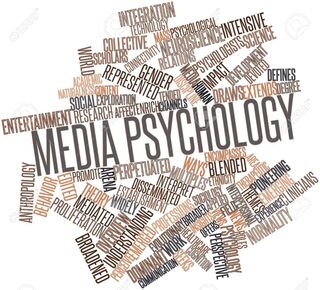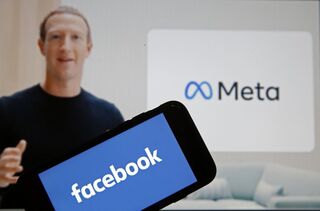Media
Media Psychology Explains Mark Zuckerberg's Metaverse
The metaverse blends virtual life & real life through a technology-enabled mix.
Posted November 15, 2021 Reviewed by Hara Estroff Marano
Key points
- Metaverse encompasses the crossover between virtual and actual reality.
- Media psychology embraces the key behaviors enabling understanding of the metaverse.
- University programs in media psychology will be an important source of leaders who will study, research and help shape the evolving metaverse.
On October 28, 2021, Mark Zuckerberg renamed Facebook “Meta, Inc.,” emphasizing his confidence and conviction about Facebook’s new future in the emerging metaverse. The metaverse, he explained, is an online world that transparently merges virtual life with real life, thereby creating a technology-driven bridge between actual and virtual reality.

Zuckerberg’s premise is that, soon, “You are going to be able to experience a perceived-as-real version of your participation in almost anything that you can imagine.” He sees this as the enhanced future delivered through a revised internet that will significantly advance internet applications in social media, healthcare ( including telemedicine), education, commerce, and entertainment. Each will manifest itself through an augmented blending of imagination and physical experience.
Interestingly, the term "metaverse" was coined in Snow Crash, a 1992 science fiction novel in which humans, as avatars, interact with each other in three-dimensional virtual space. (Stephenson, 1992) Since the mind can’t distinguish between virtual and real without applying human intelligence and knowledge, the term "metaverse" can be defined as a metaphor for a real world that blends the perceived and the actual. Metaverse is a Gestalt manifestation of individual interpretation. The metaverse definition and its applications are evolving.
During his announcement of Facebook’s name change, Zuckerberg offered examples as he opined about going to virtual concerts with your friends, fencing with holograms of Olympic athletes, and more. In fact, we already experience a variety of manifestations of Zuckerberg’s metaverse.
Recently, I visited both the Shoah Holocaust Museum at the University of Southern California and the Planetarium at Orange Coast College in Costa Mesa, California. At the USC Shoah Holocaust exhibit, I virtually toured the death camps and interviewed survivor avatars that I found stunningly indistinguishable from reality. In OCC’s Planetarium dome, I virtually traveled throughout our universe and surrounding galaxies.
In the OCC Maritime Center, the large ship training simulators involved me in situations of both virtual and augmented reality as I navigated a large troller past obstacles and out of L.A. Harbor. The simulations are hugely impressive.
There is no accurate analogy to provide perspective for Zuckerberg’s description of the metaverse. For those with some historical memory of VR development, it might be said that the Meta, Inc. concept is a proposed new-age evolution of Facebook with a possible trail back into Linden Lab’s Second Life. This is not a negative, but a positive, and Zuckerberg is trying to apply and expand the mediaverse metaphor.
Implicit in Zuckerberg’s premise is that, now, virtually, anything is possible, and there is increasingly improved technology of all types to help make these virtual realities viable. In practice, however, advances in virtual reality are usually examined by technologists from the perspective of technological advances, without enough thought to the necessary psychology of human behavior. Examination from the technology-only perspective is akin to looking at the surface of water and not thinking about what is going on beneath it. What is the media psychology supporting the technology of Meta, Inc.’s version of the metaverse?

For more than fifty years, the American Psychological Association’s, Media Psychology Division 46, The APA Society of Media Psychology and Technology, has been exploring, researching, developing, applying, and reporting on the continuously advancing concepts and theories in media psychology, including virtual and augmented reality.
Media Psychology is a specialty that studies the psychological effects of pictures, graphics, and sound, as they influence our thoughts, perceptions, visions in the mind, and behavior. (Luskin 2002) Academically, the first accredited MA/Ph.D. program in Media Psychology and the first Ed.D. program in Media Studies were both established in 2002 at Fielding Graduate University.
As past president of the APA Society for Media Psychology and Technology, and former President and CEO of Philips Interactive Media, I believe that there are principles and practices in psychology that help explain specific aspects of Zuckerberg’s metaverse.
The following are selected examples from the long menu of theories studied in depth in media psychology graduate programs, research projects in colleges and universities, that are applied in entertainment, education, commerce, health care, the military, and public policy. They are part of the geodesic framework of Mark Zuckerberg’s metaverse.

First, some media psychology definitions:
Psychovisualization: The brain cannot distinguish between virtual and actual reality. Consciousness and perception enable this understanding. Thoughts lead to feelings, and feelings to behavior.
Cognitive dissonance: The state of having inconsistent thoughts, beliefs, or attitudes.
Phenomenology: Situatedness in relation to history, society, virtual and actual reality.
Neuroscience: The study of the brain and its interpretations in behavior.
Range of Emotion: Patterns of emotion including anxiety, amusement, beauty, excitement, fear, interest, joy, relief, fatigue and many more.
Influence: The capacity to have an effect on behaviors.
Attention: Consciousness and awareness of a situation or activity.
Addiction and habituation: The causing of repetitive behavior.
Color: Influence of color on perception and behavior.
Sound: Influence of sound on perception and behavior.
Semantics: Influence of words and expressions on understanding.
Semiotics: Interpretation of icons and other symbols and perception translated into understanding and language.
Synesthetics: Blending of the senses.
Mark Zuckerberg’s use of the term "metaverse" encompasses the crossover between virtual and actual reality. The technologies, devices, and applications that bridge physical and virtual reality comprise this new boom area. The expansion will continue as the digital world of technology grows.
The digital media boom and bust at the end of the 20th century was real and it changed the world in perpetuity. The concept of the metaverse is real. It will be increasingly explained, interpreted, and applied through the various fields of computer science, robotics, social media, media psychology, neuroscience, and more.
The future will include an increasingly blended virtual and physical reality. The metaverse idea may be a harbinger of our future. The best interpretations in meaning and results are yet to come. Media psychology will continue to provide the keys to understanding and harnessing the metaverse.

The world will be watching the evolution of Facebook as Meta, Inc. Applying theories and practices in media psychology will be a big part of the story as Meta, Inc., and the metaverse vision evolve.
Luskin Learning Psychology Series No. 60
Special thanks: Toni Luskin, Ph.D., for editorial and publishing assistance.
References
Luskin, B.J. (2002) Casting the Net Over Global Learning (1st ed.). Los Angeles: Griffin
Stephenson, N. (1992) Snow Crash (1st ed.). Chicago: Random House Publishing Group.
Zuckerberg, Mark, (October 28, 2021) Founders Letter, Name change, Facebook to Meta




